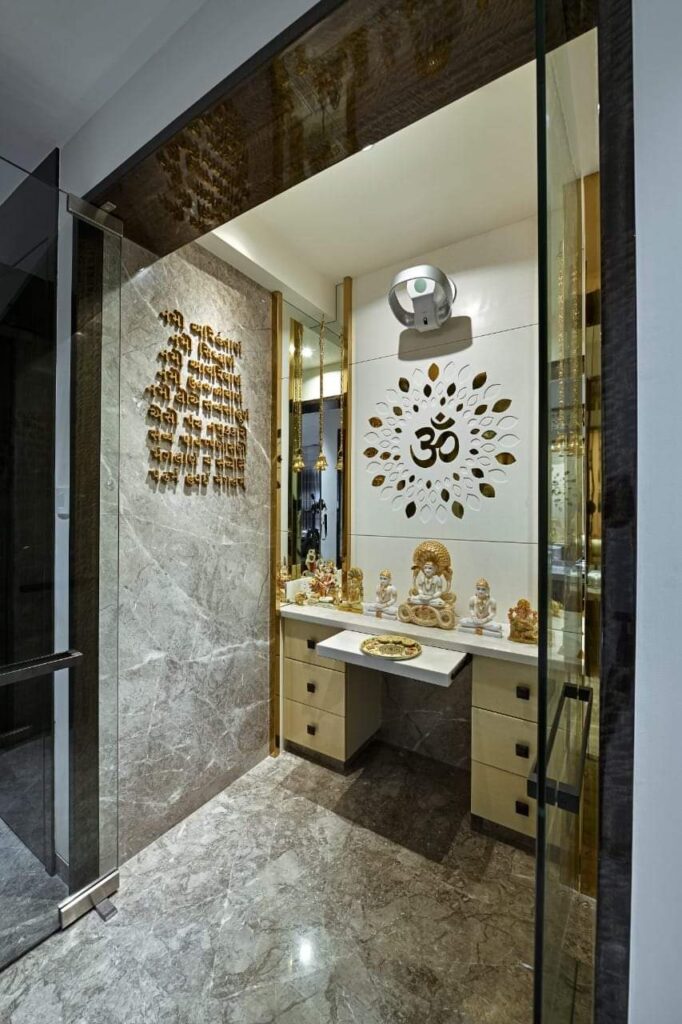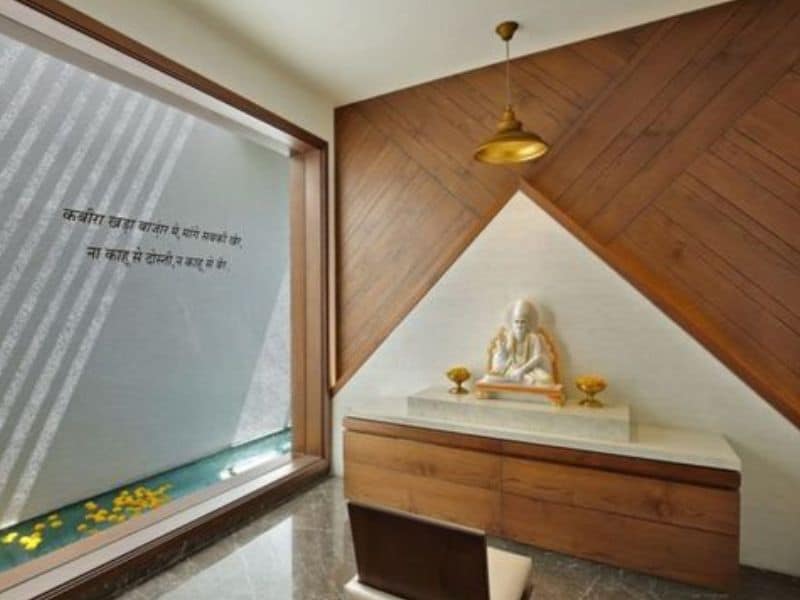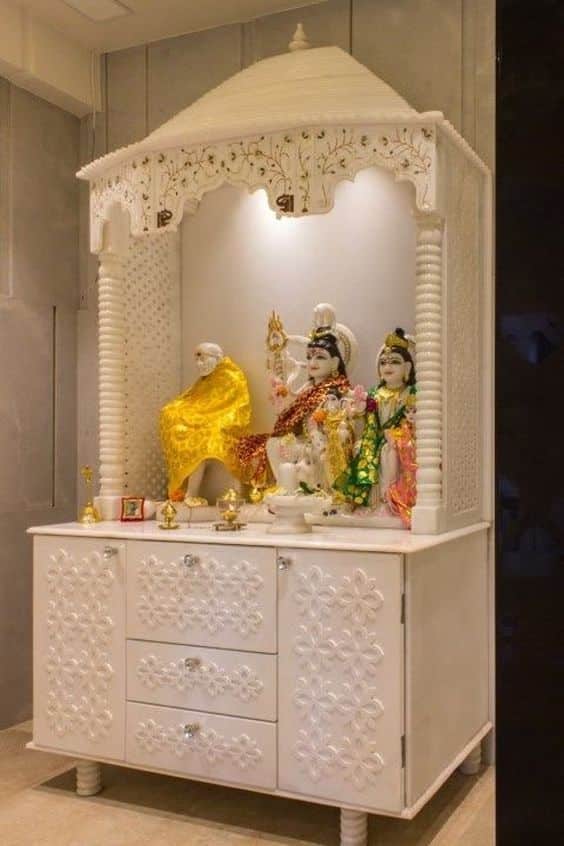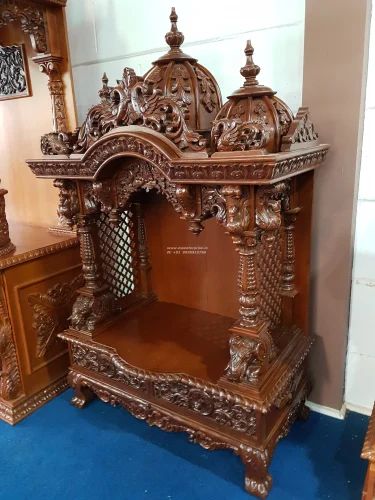In every Indian home, the pooja room, or mandir, holds a sacred place, serving as the spiritual heart of the household. Designing this space is not just about aesthetics but also about fostering a serene ambiance conducive to prayer and meditation. Here, we present 13 beautiful mandir design ideas that blend tradition with modernity, offering inspiration to craft the perfect Indian pooja room.
Traditional Mandir Designs: Embracing Heritage
Intricate Wooden Carvings
Wooden mandirs adorned with intricate carvings exude timeless elegance, reflecting the rich heritage of Indian craftsmanship. Carved motifs of gods and goddesses lend a divine aura to the sacred space, evoking a sense of reverence.




Temple-Inspired Architecture
Incorporating architectural elements inspired by traditional Indian temples infuses the pooja room with grandeur and magnificence. Arched doorways, domes, and ornate pillars transport devotees to a spiritual realm, fostering a deep connection with the divine.
Modern Mandir Designs: Fusion of Elegance and Simplicity
Minimalist Marble Altars
Sleek marble altars with clean lines epitomize modern sophistication while maintaining the sanctity of the pooja room. Paired with contemporary decor accents, such as metallic embellishments or geometric patterns, they create a harmonious blend of tradition and innovation.
Floating Mandir Shelves
Opting for floating mandir shelves offers a space-saving solution without compromising on style. These minimalist shelves, adorned with subtle lighting and floral arrangements, exude serenity, creating a tranquil environment for prayer and reflection.
Fusion Mandir Designs: Bridging Past and Present
Eclectic Mandir Decor
Combining elements from various design styles, such as traditional sculptures with modern artifacts, results in an eclectic mandir decor that celebrates diversity. This fusion of old and new creates a visually captivating space that resonates with the eclectic tastes of contemporary homeowners.
Modular Mandir Units
Modular mandir units offer versatility and customization options, allowing homeowners to adapt the design to their evolving needs. With interchangeable components and integrated storage solutions, these units maximize functionality without compromising on aesthetics.
Conclusion
Designing the perfect Indian pooja room is a deeply personal endeavor that reflects one’s spiritual beliefs and cultural heritage. Whether you prefer traditional elegance, modern simplicity, or a fusion of styles, there are endless possibilities to create a mandir that inspires devotion and tranquility in your home.
FAQs (Frequently Asked Questions)
- What materials are commonly used in traditional mandir designs? Traditional mandirs often feature wood, marble, brass, or stone, chosen for their durability and aesthetic appeal.
- How can I incorporate personal touches into my pooja room design? Consider adding family heirlooms, religious artifacts, or personalized artwork to infuse the space with your unique identity and spiritual significance.
- Are there any Vastu tips for designing a pooja room? According to Vastu Shastra, the pooja room should ideally be located in the northeast corner of the house and face east or north for positive energy flow.
- Can I create a mandir in a small living space? Yes, you can opt for compact mandir designs, such as wall-mounted shelves or portable altars, to accommodate your spiritual needs in smaller homes.
- What lighting options are suitable for a pooja room? Soft, ambient lighting, such as LED candles or dimmable lamps, creates a peaceful atmosphere conducive to prayer and meditation.
- How often should I perform maintenance on my pooja room? Regular cleaning and dusting of idols, decor items, and the mandir itself are essential to maintain the sanctity and hygiene of the sacred space.




















